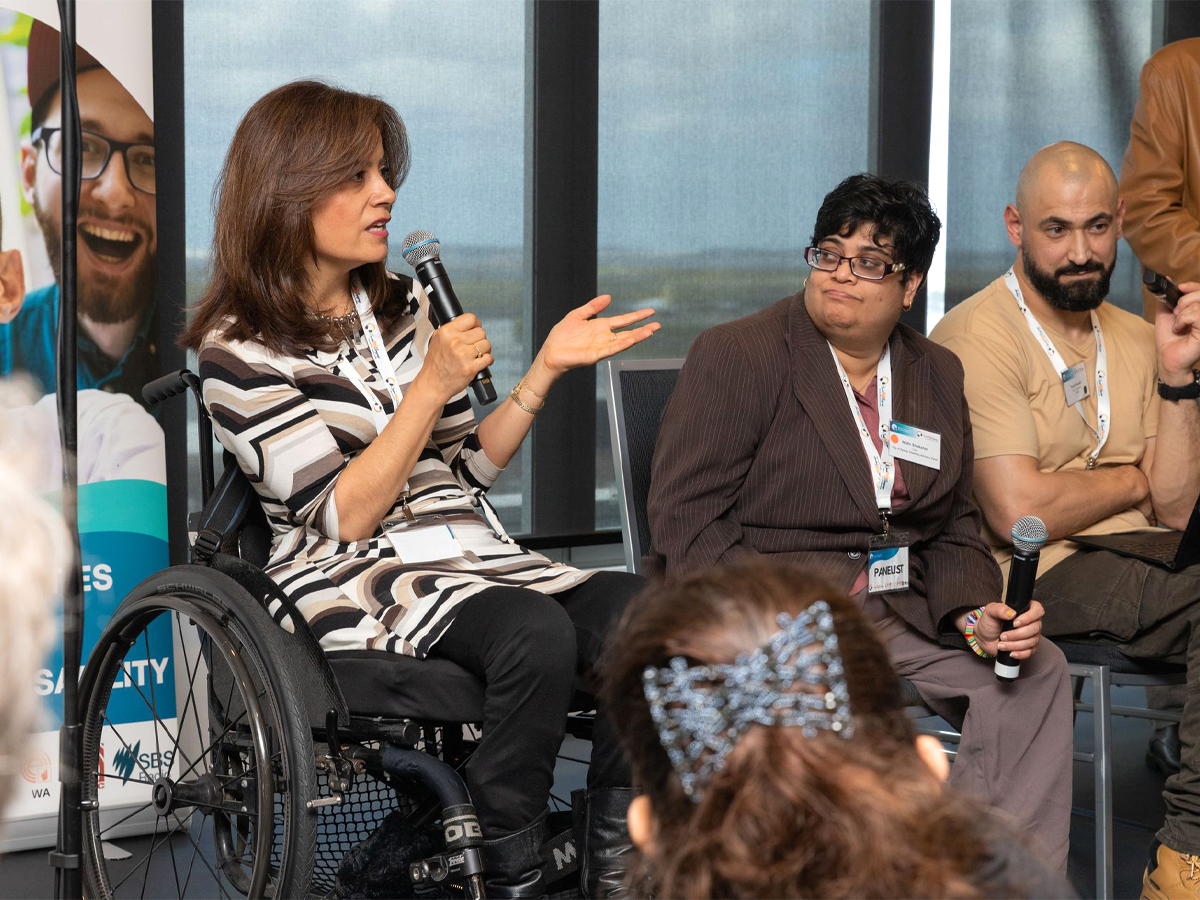A series of podcasts with culturally diverse Australians sharing stories, experiences and advice around living well with disability, has been launched.
Speak My Language (Disability) Program is a national initiative comprising more than 400 podcasts in over 22 languages, in addition to on-air conversations about living well with a disability in partnership with SBS Radio and local ethnic community broadcasters. Podcasts are available for free at www.speakmylanguage.com.au
The Ethnic Communities’ Council of NSW (ECCNSW) led the program in a historic partnership between all state and territory Ethnic and Multicultural Communities’ Councils across Australia.
ECCNSW chair Peter Doukas said it was the first time the peak bodies for multiculturalism in each state and territory have worked together to deliver a program that is national in scope and impact.
The launch event featured a live panel with storytellers who participated in the Program, sharing insights about inclusion and accessibility.
Panellists included Dance N Roll founder Rocca Salcedo, disability advocate, Yousif Assafiri, and City of Sydney Inclusion Advisory Panel chair, Nidhi Shekaran, pictured.
Rocca, who moved to Australia from Colombia, said Speak My Language is providing a voice to minorities and breaking down barriers and stigmas. “To break these barriers, it’s important that the media gives us this space, gives us this voice and gives us exposure.”
Indian-Australian Nidhi, who is blind and has cerebral palsy, said sharing your story from a culturally and linguistically diverse background is important. “You make people culturally aware of your disability and culture. You break stereotypes and you also enhance diversity.”
The launch concluded with a Korean cultural performance from Ebenezer Mission’s orchestra and choir, showcasing musicians with and without disability, who featured in the program’s Korean podcasts.
Social Services Minister Amanda Rishworth said that ILC funded projects, like Speak My Language (Disability), will “help all Australians living with disability, regardless of if they are eligible for the NDIS or not.”

